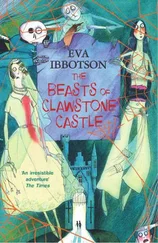Ibbotson, Eva - Magic Flutes
Здесь есть возможность читать онлайн «Ibbotson, Eva - Magic Flutes» весь текст электронной книги совершенно бесплатно (целиком полную версию без сокращений). В некоторых случаях можно слушать аудио, скачать через торрент в формате fb2 и присутствует краткое содержание. Год выпуска: 2011, Издательство: Macmillan Publishers UK, Жанр: Старинная литература, на английском языке. Описание произведения, (предисловие) а так же отзывы посетителей доступны на портале библиотеки ЛибКат.
- Название:Magic Flutes
- Автор:
- Издательство:Macmillan Publishers UK
- Жанр:
- Год:2011
- ISBN:нет данных
- Рейтинг книги:3 / 5. Голосов: 1
-
Избранное:Добавить в избранное
- Отзывы:
-
Ваша оценка:
- 60
- 1
- 2
- 3
- 4
- 5
Magic Flutes: краткое содержание, описание и аннотация
Предлагаем к чтению аннотацию, описание, краткое содержание или предисловие (зависит от того, что написал сам автор книги «Magic Flutes»). Если вы не нашли необходимую информацию о книге — напишите в комментариях, мы постараемся отыскать её.
Magic Flutes — читать онлайн бесплатно полную книгу (весь текст) целиком
Ниже представлен текст книги, разбитый по страницам. Система сохранения места последней прочитанной страницы, позволяет с удобством читать онлайн бесплатно книгу «Magic Flutes», без необходимости каждый раз заново искать на чём Вы остановились. Поставьте закладку, и сможете в любой момент перейти на страницу, на которой закончили чтение.
Интервал:
Закладка:
Guy looked at her. ‘Nerine, if you are not satisfied we can break our engagement. If you’re unhappy, you have only to say so and I will release you instantly and without reproach. But I will not accept a knighthood. Not now. Not ever. Do you still want to marry me?’
Nerine glanced down at the enormous diamond winking on her finger, then at the towers of Pfaffenstein rearing outside the window, and the undeniably attractive man now holding her gaze.
‘Of course I want to marry you, Guy,’ she said, coming to kneel beside him. ‘Of course !’
Meanwhile, in the Klostern Theatre, rehearsals for Fricassée continued to be dogged by disaster. The constructivist railway platform collapsed, precipitating five engine-greasers on to the stage below and the shock, with its memories of her own catastrophe, brought on palpitations in the Rhinemaiden, who had to be conveyed to the Rudlphino Clinic in an ambulance. The outsize Tyrolean cows turned out to have died in vain because Klasky, dissatisfied with the percussive balance, scrapped the drum and replaced it with twelve smaller ones. Herr Berger, who sang the capitalist mill-owner, developed nodules on his larynx; Frau Pollack broke a toe.
Tessa’s cheque book, under the onslaught, gave of its best. She signed a cheque for the reinforced railway platform, for the Rhinemaiden’s hospital fees, for the replacement drums. She signed a cheque for a new safety curtain (the fire people having finally caught up with Jacob), for repairs to the revolve damaged by Rayner-Meierhof’s unsentimentalized signal box, for a practical moon . . .
And as she crept home in the small hours to count up her mutilated cheque stubs, Tessa now faced a new hazard. For she had left her attic in the Wipplingerstrasse and waiting up for her, concerned and interested, were the aunts.
The Duchess and the Margravine had rented (from a distant and indigenous relation) a flat on the fourth floor of an apartment block overlooking the Central Cemetery. It was small, dark and inconvenient and the old ladies spent their days in an agony of homesickness for Pfaffenstein which they endeavoured to conceal, not only from Tessa, but from each other. Neither of them had ever shopped unattended, or travelled on a tram, or dealt directly with tradesmen. Now, they stood in queues at the butcher, pulled Quin-Quin in and out of the terrifying lift that led up to their floor – and economized.
The economies were ferocious and secret, for their great-niece must have no inkling of what was afoot. The aunts had been unable to prevent Tessa from putting half her money in trust for them, but they were determined that every groschen they could save should be added to the sum that would revert to her after their deaths. So while Tessa was at the theatre they ate virtually nothing, sent away the maid the hausmeisterin had found for them, and sat by the light of a single lamp. Then, when Tessa’s step was heard outside, lamps were lit, soup and topfenkuchen were fetched from the larder and Tessa learned that they had spent another most interesting and happy day.
‘And you, Putzerl? How did you get on?’
‘Oh, fine. Very well. I painted this bed shaped like a mouth . . .’
‘Like a mouth?’ enquired Tante Tilda.
Tessa nodded. ‘To represent decadence. It’s for the mill-owner’s apartment.’ She had picked up a letter which might well have been in Guy’s handwriting, had she known what his handwriting was like, but was actually from a choreographer who wanted her to finance his ballet. ‘Aren’t you eating anything?’ she said, looking concernedly at her aunts. ‘This soup is so good!’
‘You know we never eat at night, dear,’ said Tante Augustine repressively, and continued to ply her niece with food until Tessa went to her room – there to lie awake and reflect that Madame von Meck must have had very strong nerves or just a great many paper mills.
For it wasn’t only Fricassée, but everything, that was going wrong. Schalk, Jacob’s arch-enemy at the State Opera, cancelled a production that was doing badly and put on Bohème instead. With Jeritza singing Mimi, Raisa did not stand a chance. Jacob rushed out The Barber, but the production was old and tired and failed to draw the crowds. There were alarming rumours, too, about the lease of the theatre . . .
‘It’s as though there’s a jinx on us since we left Pfaff-enstein,’ said Boris.
But even he was shaken when Jacob appeared, after a matinée of Fledermaus, and asked to be fitted with a blond toupee and a moustache so as to elude the creditors who waited for him outside.
‘Very Aryan,’ he said, with satisfaction, when Boris had finished.
Then one day in the middle of September, when Tessa walked into her bank as usual for another cheque book, she was told by a respectful (not to say obsequious) young cashier that the manager would be most grateful if Her Highness could spare him a few moments.
The homily now delivered by the portly Herr Simmelmann was unctuous in tone and seemingly interminable. Her Highness’s initial deposit was now fully withdrawn and while he was aware that Her Highness still had other resources and would not, in fact, default on her commitment to the bank, he had to point out that at the present rate she would find herself in serious difficulties in a relatively short period of time. There was the further matter of Her Highness not being technically of age according to Austrian law, which meant that if it was felt that she was in unsuitable company and being victimized, her business advisors – of whom he was happy to call himself one – might feel it necessary (entirely in her own interest of course) to take certain steps . . .
Tessa thanked him, transferred another block of securities and said nothing to Jacob. Thus her ancestress, Hildegarde of Breganzer, who had leapt naked into the flames rather than renounce her faith. Thus Tessa now . . .
16
At No. 12, King Street, Byker, Newcastle upon Tyne, Martha Hodge was having a farewell party. Living beside the shipyard as they did, Martha’s friends and neighbours (and she was a woman whose neighbours were all her friends) were not parochial. The hooting of ships down the Tyne was as familiar to them as breathing and many of them had men at sea.
Still, Martha was going to Vienna, and then further still, and she was going to the wedding of her foster-son whom they all remembered rampaging round the streets like a fiend incarnate, and who had turned out so well; so the beer was flowing freely and they had got to ‘Cushy Butterfield’ and ‘Keep Your Feet Still, Geordie Hinny’ well before ten o’clock.
Martha, busy by the range warming sausage rolls and cutting more sandwiches, was in two minds about going. She did not like the look of old Mrs Hookey at No. 3; there had been a blue look round her mouth that morning and if she died while Martha was in Austria, Martha would never forgive herself. And she felt bad about the Ridley twins: she had offered to mind them while Daisy went to her mam in Middlesborough and that would now have to wait. There was the cat, too: a stray which lived wild on the dump behind the shipyard. Martha had kept her in scraps while she nursed her kittens and though Minnie in the corner shop had promised to see to her, Martha could not help worrying a bit.
But Guy had said he would not be married without her, and he wanted her to come for a bit of a visit so as to get to know Nerine, so that was that. She would have gone to the North Pole to see Guy wed, and probably it would not be too bad even if it was a castle. People, Martha had found, were people, wherever you went.
‘But why won’t you leave here, Martha?’ Guy had said when he first began to make all that money. ‘Why won’t you let me buy you a nice bungalow? Nothing pretentious, just a bit of garden and a bright kitchen. You wouldn’t have to go far away.’
Читать дальшеИнтервал:
Закладка:
Похожие книги на «Magic Flutes»
Представляем Вашему вниманию похожие книги на «Magic Flutes» списком для выбора. Мы отобрали схожую по названию и смыслу литературу в надежде предоставить читателям больше вариантов отыскать новые, интересные, ещё непрочитанные произведения.
Обсуждение, отзывы о книге «Magic Flutes» и просто собственные мнения читателей. Оставьте ваши комментарии, напишите, что Вы думаете о произведении, его смысле или главных героях. Укажите что конкретно понравилось, а что нет, и почему Вы так считаете.












